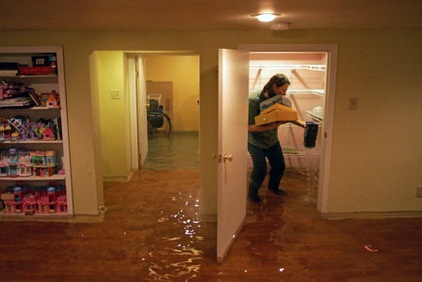What Those Home-Sale Disclosures Are Really Saying
While a home inspection is your first line of defense against hidden property damage, your inspector can report only what can be seen. And while an inspector can peek into an attic, he or she can’t peer into the home’s past. Fortunately, most states require sellers to fill out and sign disclosure agreements, which are meant to shed light on damage that may lurk beyond an inspector’s line of sight. Disclosure agreements not only protect the buyer from unforeseen problems; they also protect the seller from legal action down the road.
The point at which disclosure is made depends not only on the state you live in, but on the real estate market in your area. Where bidding wars are the norm, agents are likely to make the disclosure available right at listing, while buyers in less competitive markets may not see the disclosure until a few days after the house goes into escrow.
What should you expect to see in a disclosure agreement? And can you do even more to protect yourself? Find out here.

Disclosure agreements typically take the form of a checklist and are a few pages long. While disclosure requirements vary by state, they most commonly include information about appliances, structural components (like the roof and foundation) and environmental hazards (like lead or asbestos).
Legal expert Ilona Bray of Nolo.com points out that while the trend seems to be toward making disclosure agreements more extensive, some states are more specific than others. California, for example, is among the strictest, and Arizona requires disclosures based on its unique pest-control problems. “In Arizona they have problems with scorpions and burrowing owls, so those are on the disclosure list,” says Bray.
Check with your state to find out exactly what’s required.

A caveat: Disclosure agreements require sellers to tell only what they know about the property. That can complicate matters in situations like bank-owned properties and estate sales, where the seller may not know much about the house.
“In California sellers are exempt in a foreclosure situation from doing the typical disclosure,” says real estate agent Julie Angelo of Berkshire Hathaway. That’s because a bank likely won’t know if a toilet once flooded the bathroom or the basement sprung a leak 15 years ago.
In cases like estate sales or foreclosures, Angelo stresses the importance of choosing a highly qualified inspector.
“If there’s any sort of hint that something needs to be looked at, hire a specialist,” says Angelo. “The best way to protect yourself is to assume the worst and spend the money in advance on a plumber, an electrician, a soils expert — all those things — so you know in advance and can make price adjustments in your negotiation rather than being stuck after the fact.”

Of course, there’s always the risk that a seller may still not know everything about the house. Bray says it’s important to protect yourself by reading the disclosure form carefully and taking note if a seller has included a lot of “I don’t knows.” In that case you’ll need to do some extra digging.
“For example, if the homeowner doesn’t know anything about the furnace, look at it, write down the serial number, check consumer websites for recalls, and when the inspector comes, make a special note asking them to take a look at its age and condition,” says Bray.

While you and your agent can usually make sense of a disclosure agreement together, it’s wise to call in outside help if the document discloses a lot of problems, or if you’re stretching your budget to afford the house. “Construction management teams usually have someone who can look at those things and make sense of them,” says Angelo.
For example, a cracked foundation can mean any number of things to a layperson, but an experienced contractor will be able to get to the root of the problem. He or she will also likely give you a ballpark estimate for what it might cost to fix any problems, so you can build those extra costs into your offer.

If you do move into a house and suspect that the information on the disclosure agreement was false, Bray suggests first taking a deep breath before getting upset. “Keep in mind that homes are continually aging, and one can overreact,” says Bray.
On the other hand, you do have legal recourse in the case of a problem that couldn’t possibly have just popped up. For example, Bray describes a situation in which the buyers moved in and water suddenly started pouring into the house through the ceiling. The home had acoustic tiles, and the homeowner pushed them aside and found a cooking pot that had been tucked in to catch leaking water.
“That’s definitely a situation where you’ve got pretty solid evidence that somebody knew about this before the house was sold and just did not disclose,” says Bray.
More commonly, however, homeowners find themselves in more ambiguous situations, where there’s little evidence to prove whether the previous owners knew about a potential problem. In these cases Bray recommends hiring a contractor to assess the situation, and even talking to neighbors to find out if there was ever any talk of a problem. In the end you’ll need to decide whether the time and money spent on a lawsuit outweigh the cost of simply fixing the problem.
Fortunately, by doing your due diligence and working closely with your inspector, you can likely avoid these issues in the first place and enjoy your home without putting your lawyer on speed dial.












